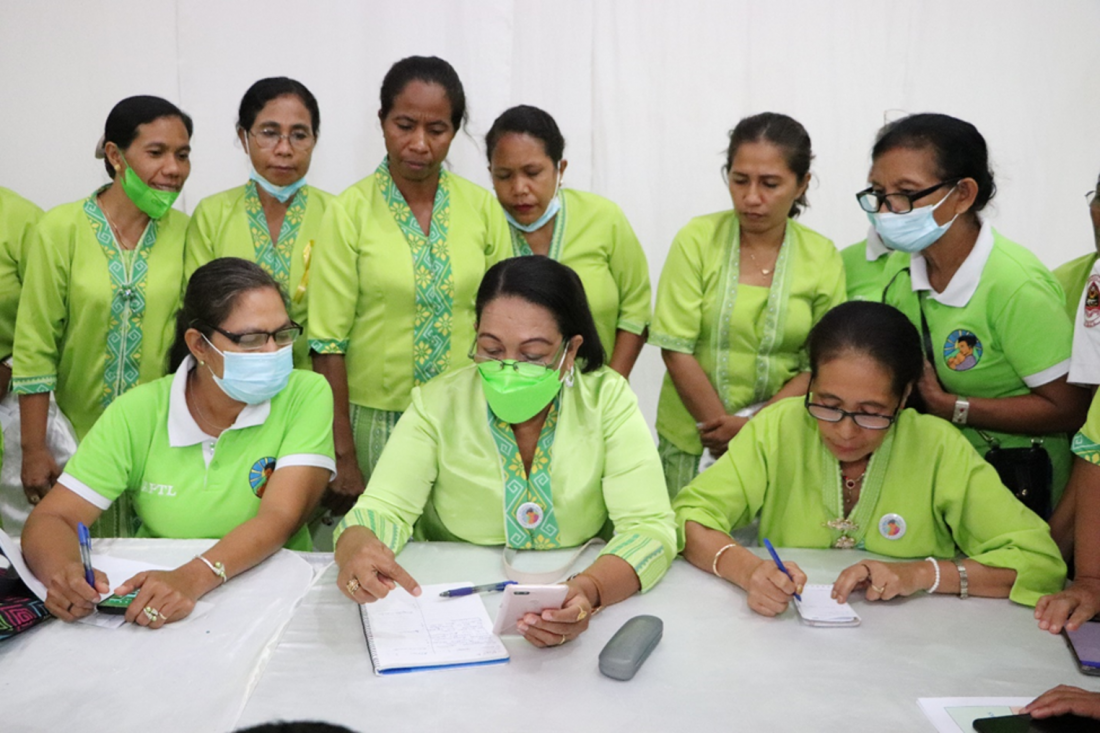Supporting High-Quality Midwifery Services in Timor-Leste
Subtitle
Local stakeholders play key role in standards-setting effort
Local stakeholders play key role in standards-setting effort
Date

Midwives discuss draft competency standards and areas for improvement at a December 2021 meeting in Dili, Timor-Leste.
The USAID Health System Sustainability Activity* is working with the Timorese Midwives’ Association and the Timor-Leste Ministry of Health to set clear standards for midwife competencies and performance evaluation, with the goal of more consistent and high-quality maternal and newborn care services.
In December 2021, more than 180 midwives from across Timor-Leste participated in an Activity-led event to identify areas for improvement in a set of draft standards. Among the conclusions of the two-day meeting were that the midwife competency standards need to be more tailored to the country’s culture. For example, midwives said the standards should consider midwives’ knowledge of local marriage customs and practices that might affect women’s reproductive health and care decisions.
“We would like to ensure the competency standards are used by the pre-service and in-service training institutions, so that our trainings are also competency-based.”
- Natalia de Araujo, President, Timorese Midwives’ Association
The midwives also voiced concerns about the subjective nature of some of the draft performance evaluation indicators, such as those concerning responsibility, honesty, punctuality, and diligence. Participants advocated for more objective evaluation mechanisms to inform the indicators, such as timesheets, care reports, and interviews with patients.
Midwives also pointed to gaps in the national training curriculum, including a need for more and better in-service training on topics such as emergency obstetric and newborn care, clean and safe delivery, family planning, ultrasonography, integrated management of neonatal and childhood illness, nutrition, and gender-based violence. These updates would help ensure that the training curriculum for midwives aligns with the competency standards.
With Activity support, the Timorese Midwives’ Association is now advocating to advance their proposed curriculum updates and standards through the Ministry of Health approval process. Once MOH review is complete, the standards can be officially issued in a ministerial decree.
Natalia de Araujo, president of the Timorese Midwives’ Association, is excited about the anticipated revisions to the competency and performance evaluation standards. “We would like to ensure the competency standards are used by the pre-service and in-service training institutions, so that our trainings are also competency-based. Our next step is to ensure we have an examination board that will help assess midwives against the standards, and ensure we are providing high-quality health care to our community.”
Moving forward, the Activity will engage with other health care professional associations to develop their own sets of competency standards and performance evaluation tools, including the Nurses’ Association and Doctors’ Association. Establishing these national policies and standards will improve training and professional development opportunities for health care workers throughout Timor-Leste.
* The USAID Health System Sustainability Activity is the name of the global Local Health System Sustainability Project (LHSS) in Timor-Leste.
